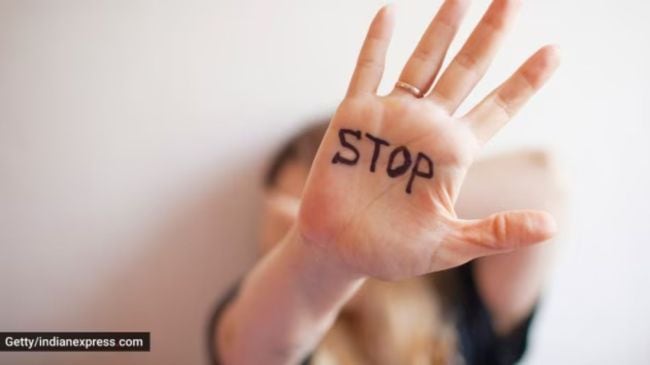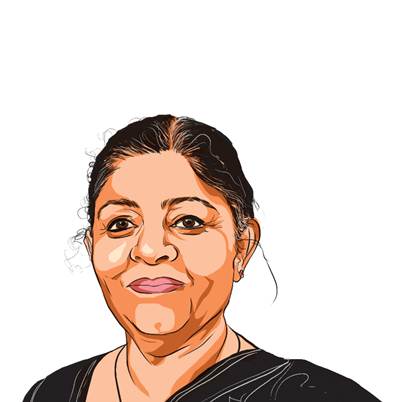Opinion Violence against women is more than crime – it’s a public health issue
We cannot build a healthy India if half our population continues to suffer in silence. This World Health Day, let us be clear: health means freedom from violence.
 We also need a strong public awareness campaign — much like those for polio or family planning — to break the silence around gender-based violence. (File photo)
We also need a strong public awareness campaign — much like those for polio or family planning — to break the silence around gender-based violence. (File photo) This World Health Day, as we reflect on the foundations of health equity, it is vital to confront a crisis hiding in plain sight — gender-based violence (GBV). GBV is not just a social or legal issue — it is a public health emergency with devastating impacts on the well-being of millions of Indian women and girls.
According to the fifth round of the National Family Health Survey (NFHS-5), nearly one in three ever-married women aged 18-49 in India has experienced physical, sexual, or emotional violence by their intimate partner. In some states, such as Bihar, nearly one in two women report such experiences. Yet, this data only scratches the surface. Many do not report abuse due to fear, stigma, or lack of support. NFHS-5 also reveals that only 14 per cent of women who experience violence seek help from institutional sources such as police or social workers.
GBV is both ubiquitous and complex. It includes physical, sexual, emotional, and psychological abuse that undermines a person’s safety, dignity, and well-being. Many also face economic abuse, and these forms of violence — often overlapping — leave lasting scars, yet remain normalised by patriarchy. NFHS-5 data shows that 37 per cent of women and 34 per cent of men believe that wife-beating is justified under certain circumstances — such as for arguing, going out without permission, or disrespecting in-laws.
The scale of the crisis is reflected in the numbers. A total of 4,45,256 cases of crimes against women were registered in 2022—a 4 per cent increase over the previous year, according to the 2023 National Crime Records Bureau (NCRB) report. These account for 8 per cent of all cognisable crimes — and they represent only the tip of the iceberg.
The physical consequences of GBV are stark: bruises, fractures, burns, unwanted pregnancies, infections, and complications from unsafe abortions. But the toll doesn’t stop there. Survivors often suffer from chronic pain, gastrointestinal issues, and reproductive health problems. The psychological impact is equally severe, with heightened risks of depression, anxiety, PTSD, substance abuse, and suicide. These outcomes represent a broader public health failure.
Despite this, GBV remains largely absent from India’s health discourse. Health systems are rarely trained to identify survivors, provide appropriate care, or make referrals. Signs of abuse are often overlooked — or worse, dismissed. Hospitals lack screening protocols, and few primary care settings offer trauma-informed counselling or safe spaces.
It’s time we challenge this status quo. Recognising GBV as a public health issue is not just semantics — it is essential. The health sector plays a critical role in both prevention and response. Survivors are far more likely to interact with a health worker than with police or courts. Health systems must become first responders — not silent bystanders.
We need to integrate GBV response protocols into national health programmes, especially in reproductive, maternal, and adolescent services. This includes routine screening, staff training, and clear referral pathways to legal aid, shelters, and psychological support. ASHAs (Accredited Social Health Activists) and ANMs (Auxiliary Nurse Midwives) must be trained in first-line care and shifting harmful norms.
A public health approach also demands investment. We need more shelters, helplines, legal clinics, and crisis centres, especially in rural areas. Trauma-informed counselling must be expanded, especially for adolescent girls and young women who are often overlooked. India’s health budget must fund GBV prevention with clear accountability.
Globally, countries have begun to act. In Brazil, the One-Stop Crisis Centre model — also adopted in parts of India — offers medical care, legal support, and counselling under one roof. In Malaysia, domestic violence screening is integrated into maternal health services. In Rwanda, the health ministry works with police and courts for coordinated action. India can learn from and adapt these models.
We also need a strong public awareness campaign — much like those for polio or family planning — to break the silence around GBV. Survivors must know their experience is not acceptable and help is their right. Reducing stigma is as vital as policy reform — and sustained social and behavioural change communication can play a transformative role.
Equally important is involving men and boys in the process of change. Ending GBV is not only about protecting survivors — it is about transforming the attitudes of those who perpetrate violence. At the Population Foundation of India, we run the campaign Desh Badlega, Jab Mard Badlega — because real change requires men to unlearn harmful norms and become allies in building a just society.
Ultimately, GBV cannot be confined to “women’s issues” or law enforcement. It must be recognised for what it is: a public health crisis of epidemic proportions. The impact of violence reverberates across generations, undermining the health and development of families, communities, and the nation. Addressing it requires a coordinated response across government, civil society, media, and communities. We cannot build a healthy India if half our population continues to suffer in silence. This World Health Day, let us be clear: health means freedom from violence.
The writer is Executive Director of Population Foundation of India






